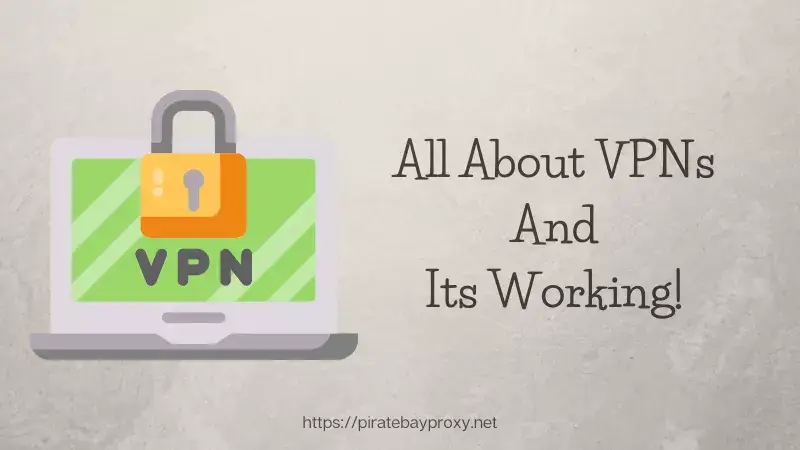
A VPN is an acronym for Virtual Private Network. A VPN creates a secure connection to the internet by re-routing your traffic through one of its servers and can help bypass censorship or geographical restrictions.
The best thing about using a VPN is that it gives you anonymity from 3rd parties so they cannot see what web pages are being visited in real-time. If you’re not sure if you should use a VPN, read on to find out more!
How does a VPN Work?
VPN works by encrypting your traffic and then sending it through their VPN server. This VPN server can be in the US, Europe, or any other location based on the server locations provided by the VPN provider you choose to use. Once you activate a VPN by selecting a region, for example, ‘USA,’ your system is assigned a USA IP address. This address is portrayed to the websites you visit, thereby hiding your original IP. In technical terms, VPN creates a tunnel between your computer and a VPN server, and the system will communicate every internet resource you access through this virtual tunnel.
VPN providers let you download their VPN software, usually called a VPN client. This VPN client facilitates the connection to the remote server by creating a tunnel when installed on your device. So VPN client and VPN server work together in tandem to secure your traffic. VPNs work the same way whether you have torrent VPNs or other VPN services, and it doesn’t matter which VPN protocol is being used, PPTP VPN or Open VPN. However, the encryption and features offered by these VPNs vary depending on the provider you choose.
How Does a VPN Protect Your Privacy and Security?
When you run a VPN, all of your Internet traffic travels through it before going anywhere else. VPNs are top-rated for downloading files via BitTorrent, thanks to their ability to prevent third parties from seeing your IP address and monitoring what you download.
VPNs also help protect your privacy by preventing anyone – even a malicious Internet Service Provider (ISP) – from monitoring or examining your internet activity. VPNs achieve this privacy by hiding VPN users behind IP addresses that are not their own.
VPNs secure users’ connections by encrypting the data traveling to and from a VPN server. This encryption prevents VPN-monitoring organizations, such as governments and law enforcement agencies, from keeping tabs on VPN users’ internet activity. VPNs also mask users’ IP addresses and keep them hidden from prying eyes.
Sometimes VPNs accomplish this IP address cloaking by selecting IP addresses inaccessible to VPN-monitoring organizations, such as those belonging to residential Internet users, public VPN servers, or Tor users.
Why Should You Use One?
If you are downloading torrents, especially from top torrent sites like The Pirate Bay, KickassTorrents, etc., VPN is the best solution to protect your online privacy. VPNs not only save you from ISPs, but they also help you to secure your torrent downloads and can help you avoid copyright infringement fines too!
VPN providers offer VPN software that you can install on every device you use to download torrents. VPN software takes care of your VPN connection and protects your privacy by re-routing all your online traffic through VPN servers.
VPN benefits extend far beyond just privacy protection. VPNs will also help bypass geographical restrictions and unblock websites like Netflix and other popular streaming services from anywhere in the world.
Are There Any Drawbacks When Using a VPN?
- You have to be very careful when choosing a VPN provider since most of the freely available options in the market can be slow and frustrating to deal with.
- Sometimes, VPNs are a bit clunky to use, especially if you want a VPN only for downloading torrents, because some free VPN software comes bundled with other addons like adware or browser hijackers. These bundled VPNs can cause your computer to run slower, freeze or even crash.
- VPNs can also be a bit pricey compared to other options, such as proxy services.
You can avoid most of the drawbacks mentioned above by choosing a reliable and trustworthy VPN provider. We have done the research and identified the top 3 VPN providers that offer best-in-class security and features.
Should You Use One At Home or Work, On Your Phone, or Both Places?
The VPN client can be installed on every internet-enabled device. VPN clients are available for all major operating systems, including Windows, iOS, Linux, and Android. Home routers can also work as a VPN client, and this is sometimes referred to as Secure Gateway VPN because the VPN traffic flows through your router.
Suppose you have set up a VPN on your router. In that case, you need not install and activate it again on your router-connected devices like smartphones and computers because your connection is already encrypted and routed through a VPN server when connected to that router.

